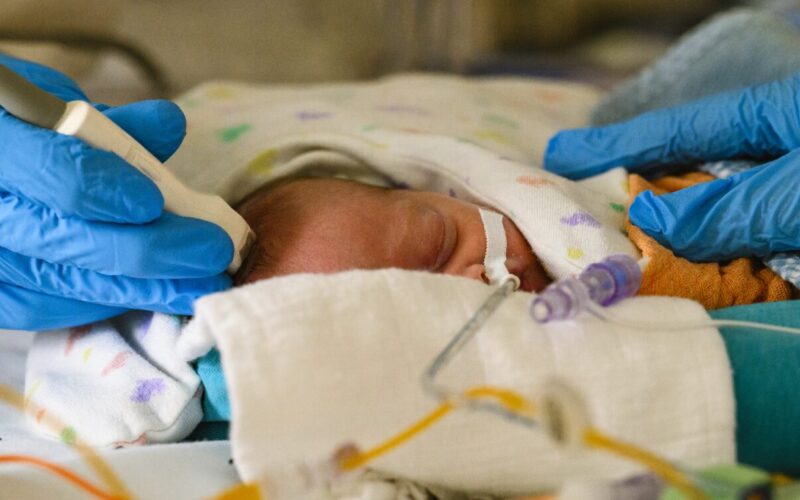Sleep researcher Jeroen Dudink of UMC Utrecht and colleagues have received a grant of more than 400,000 euros. With it, they will study the influence of light on brain development of premature babies in the neonatal intensive care unit (NICU). The goal? Feed these children an appropriate ‘diet of light’ so that they can develop optimally.
Premature babies are vulnerable, and at risk of developmental delay. So any benefit doctors can give them is vital. “In this regard, we always look to nature for inspiration,” said neonatologist Jeroen Dudink. “And in the womb, we know from research, there is a clear day-night rhythm. We are convinced that offering a day-night rhythm helps the unborn child’s development.”
Beds by the window
From that conviction came the idea to study the influence of daylight on the brain development of premature babies. Seeing the value of the plan, the Velux Stiftung made over 400,000 euros available for a research project. Jeroen is leading this project, called BabyBright. He is working with colleague Laura Kervezee of LUMC, who specializes in the day-night rhythm that every human being has (the so-called “circadian rhythm”), and Professor Enrico Lopriore of LUMC’s neonatology department.
The research is taking place on two NICUs with different designs, those at UMC Utrecht (WKZ) and LUMC. “In the project we are going to measure the light-dark cycles in these two NICUs,” Jeroen says. “For example, does it matter that in Leiden almost all the beds are by the window, while in Utrecht it doesn’t? We also follow the children for a longer period of time so that we can determine the impact of light on their development.”
Determining optimal exposure
Among other things, the researchers look at the babies’ sleep, growth, immune system and circadian rhythm development. They also include the composition of the light, i.e., the color of the light the infants are exposed to, in their analyses. Ultimately, they hope this will allow them to determine the best light conditions for the NICU. Jeroen: “Hopefully in this way we can offer vulnerable, premature babies a better chance of a good start in life.”
